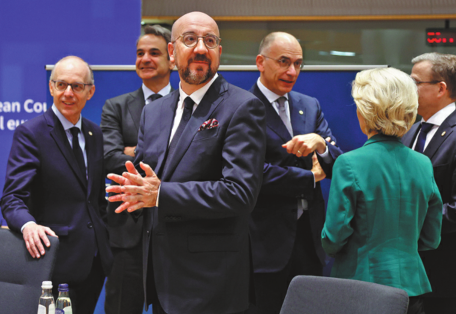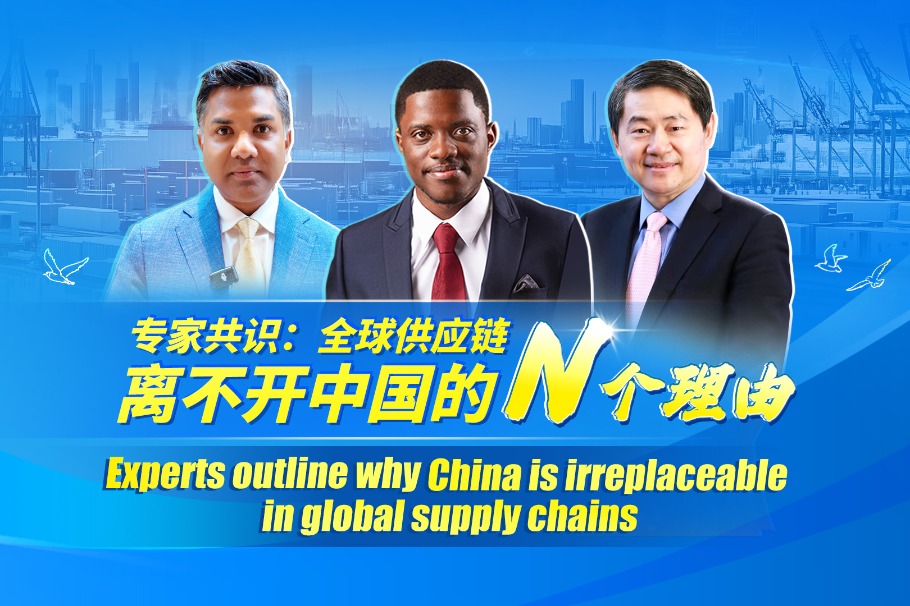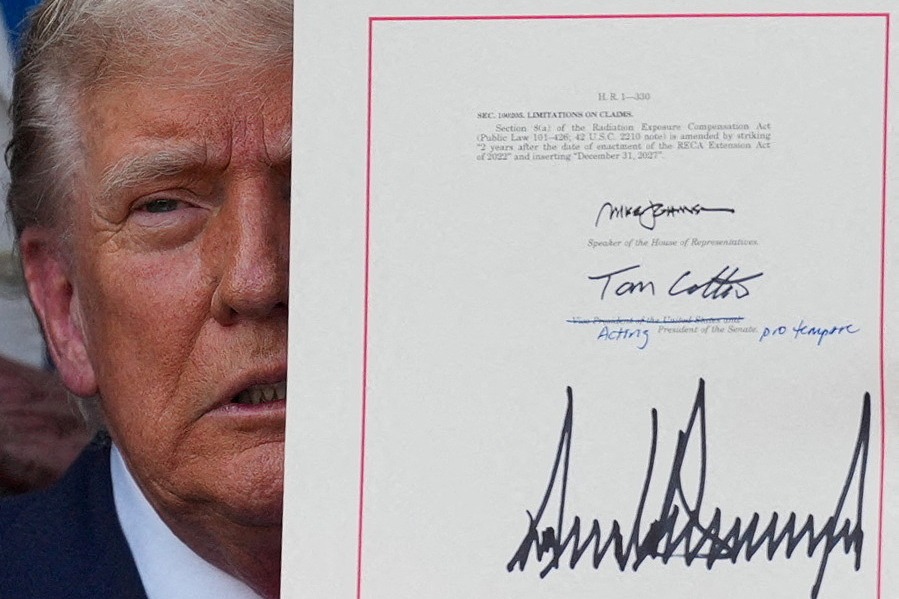EU leaders call for strengthened competitiveness

BRUSSELS — The European Council's special two-day summit wrapped up on Thursday, with topics touching upon the crises in Ukraine and the Middle East and vowing to enhance the European Union's competitiveness amid drastic global shifts.
European Council President Charles Michel emphasized the bloc's overreliance on external economic and security bases, which he argued undermines the EU's competitiveness and global influence.
Affected by factors such as intensified geopolitical tensions, continued monetary tightening and weak global demand, the European economy continues to be sluggish this year, particularly evident in manufacturing and energy-intensive industries.
Preliminary statistical data released by Eurostat at the end of January showed that the economies of the eurozone and the EU experienced zero growth in the fourth quarter of last year compared with the previous quarter. The European Trade Union Confederation reported last month that nearly 1 million manufacturing jobs had been lost in the EU over the past four years.
The summit highlighted nine key areas to drive competitiveness, such as deepening the single market, developing and implementing effective industrial policies, and increasing investments through the Capital Markets Union, or CMU, and the European Investment Bank.
EU leaders deliberated on a proposal by former Italian prime minister Enrico Letta, who cautioned "no time to waste" and a narrowing window to address the widening economic gap with the United States. Letta's proposal, "Much More Than a Market", points out that geopolitical tensions and rising protectionism threaten the EU's economic security and undermine its development in technological fields such as artificial intelligence and clean technology.
The report outlined the critical need for funding to support the EU's goals in green and digital transitions, EU enlargement and defense enhancements.
Letta pointed to the EU's 33 trillion euros ($35 trillion) in private savings as an underutilized resource, and highlighted that approximately 300 billion euros of EU family savings are redirected abroad each year, predominantly flowing into the US and managed by local asset managers.
European Commission President Ursula von der Leyen stressed that the EU could raise an additional round of about 470 billion euros a year in funding from the capital markets if the EU completed the CMU.
Michel also supported leveraging the CMU to channel these funds into European companies, likening the initiative to the US' Inflation Reduction Act, which allocated nearly $400 billion to subsidize domestic production.
Despite the endorsement of the CMU as it was written in the conclusions document, divisions among EU leaders remain evident. While France and Germany backed the initiative, the majority of the EU's 27 member states expressed reservations about losing national control and expanding EU regulatory powers.
Xinhua

Today's Top News
- Israel's Gaza takeover plan widely condemned
- S. Korea visa waiver spurs surge in travel interest
- Top cities signal easing to support property market
- Ties bolster heritage protection
- Gaza 'takeover' will ignite another horrific chapter for the Middle East: China Daily editorial
- STAR shines for innovative companies






























